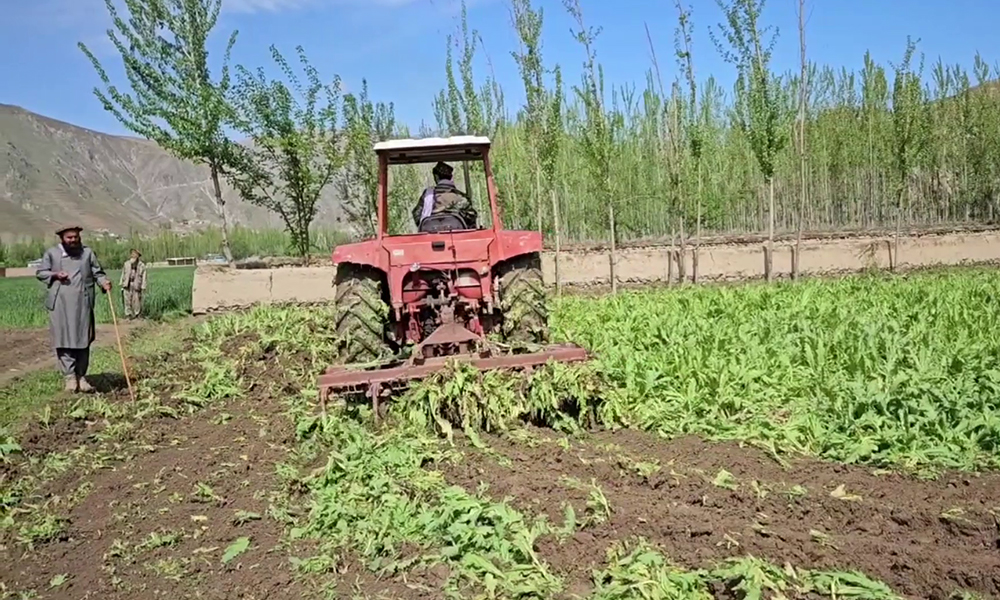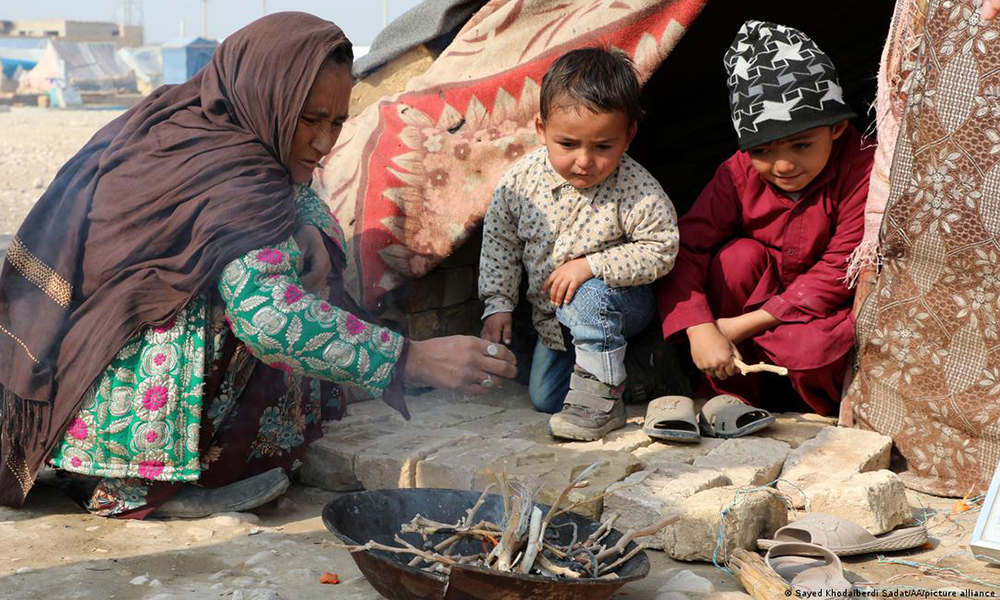Latest News
UNAMA finds torture still prolific across all Afghan detention facilities

Allegations by detainees of torture in Afghan detention facilities continue at high rates with the procedural rights of those detained largely ignored, UNAMA stated in its latest bi-annual ‘Torture Report’ released on Wednesday.
UNAMA stated that torture and ill-treatment, prohibited under both Afghan and international law, persist in the facilities of government agencies in Afghanistan.
In a statement issued by the mission, they said they had however recorded a three per cent reduction in allegations compared to the previous monitoring period.
“Torture can never be justified. It has lasting consequences for victims, their families and society,” said Deborah Lyons, the Secretary-General’s Special Representative for Afghanistan.
“I recognize the efforts made by some Government Ministries and Institutions, but much more needs to be done to bring this practice to an end. In particular, perpetrators must be held accountable. This would increase confidence in the rule of law and can be a contributing factor towards peace,” said the envoy, who is also head of UNAMA.
The report summarizes the findings of monitoring by the UN of the treatment of persons deprived of their liberty for security- or terrorism-related allegations between 1 January 2019 and 31 March 2020, when physical detention visits by the UN were suspended due to COVID-19.
It is based on interviews with 656 detainees, including 565 men, six women, 82 boys and three girls, in 63 detention facilities in 24 provinces across Afghanistan.
The report looks only at government facilities and not those of the Taliban or other anti-government elements, due to lack of access, the statement read.
The percentage of credible allegations of incidents of torture and ill-treatment committed by the Afghan National Defense and Security Forces (ANDSF) was recorded at 30.3 per cent, down from 31.9 percent for 2017-2018.
Allegations of torture in Afghan National Police (ANP) custody was 27.2 per cent, a decrease from the previously recorded 31.2 per cent.
A reduction in allegations of torture in National Directorate of Security (NDS) custody from 19.4 to 16 per cent was noted.
According to the statement, the report highlights the important role played by internal mechanisms in preventing torture, especially NDS human rights officers visiting places of detention.
UNAMA stated it remains a matter of serious concern that more than 30 per cent of all interviewees provided credible and reliable reports of torture and ill-treatment.
Some sharp regional differences are noted in the number of allegations made by detainees. There was a particularly high number of allegations of torture and ill-treatment concerning the ANP in Kandahar, with 57.7 per cent of complaints. The report also noted the disturbing reports of enforced disappearances allegedly linked to the ANP in Kandahar.
The report also found that in almost no instance of detention either by the ANP or NDS, were detainees informed of their rights, able to access a lawyer, or went through medical examination, prior to questioning by officials.
Detainees’ ability to contact their families in early days after their arrests remained low.
UNAMA also stated that it was concerned that nearly half of all persons detained by the ANP and NDS claim that they were asked to sign or thumbprint a document without knowing its content.
UNAMA meanwhile recommended the creation of an independent national preventive mechanism on torture described in the Optional Protocol to the Convention against Torture.
“Such a dedicated mechanism would have the authority and enhanced capacity and expertise to inspect all detention facilities, conduct follow up investigations and make detailed technical recommendations on prosecution of perpetrators and remedial measures,” read the statement.
Latest News
Over 6,000 acres of land cleared of poppies in Badakhshan

Badakhshan Police Command says it has cleared more than 6,000 acres of poppy fields in northern Badakhshan province.
The anti-narcotics department of Badakhshan Police Command says that since the beginning of the campaign to destroy the poppy fields in this province, they have cleared more than 6,000 acres of land.
According to these officials, poppies have however been planted in more than 10 districts this year.
The anti-narcotics department of the Badakhshan Police Command says that the campaign to destroy the poppy plantations started two months ago and continues.
According to the officials, during this period, 6,300 acres of land has been cleared.
Some of the farmers whose fields were destroyed say that poppy is more profitable than other agricultural products, but now that their land has been cleared, they want alternative crops.
According to the officials, Kishim, Argo, Darayimand and Jurm districts are among the districts where poppies are cultivated.
Latest News
MSF ‘deeply concerned’ over new phase of deportations of Afghans from Pakistan

Médecins Sans Frontières (MSF) said Wednesday it was deeply concerned for the rights and welfare of Afghan refugees in Pakistan in the wake of the recent announcement by Islamabad that it plans to start Phase Two of the deportation campaign.
Pakistan is home to an estimated 3.7 million Afghans, and a reported 500,000 have crossed the border so far.
Many Afghans living in Pakistan have been there for decades and have spent more time in the country than their country of origin, without any legal recourse to remain in the only place they can effectively call “home”.
For many Afghans, Islamabad’s “repatriation” campaign means packing up their belongings and carrying them on a horse, cart, car and bus and traveling en masse to a country that is already struggling with widespread poverty, inadequate health services and increased restrictions on women, MSF said in a statement.
The second phase of the deportations leaves an estimated 800,000 Pakistan-issued Afghan Citizen Card (ACC) holders vulnerable to return, while phase three is expected to result in the further deportation of UNHCR-issued Proof of Registration (PoR) card holders, MSF said.
MSF first started working in Pakistan in 1986, and today provides much-needed medical care to people in Balochistan, Khyber Pakhtunkhwa and Sindh provinces.
The Islamic Emirate of Afghanistan (IEA) and UN agencies estimate that more than half a million people have been deported from Pakistan or voluntarily returned to Afghanistan in the past six months.
The United Nations High Commissioner for Refugees said last month that nearly two million Afghan refugees are living in Pakistan and that the agency needs $368 million this year to assist these people.
Latest News
2023 marred by ‘tremendous challenges’ for Afghanistan

Last year, 2023, was a year of “tremendous challenges” for the people of Afghanistan, but it was also a year marked by resilience and determination, the Deputy Special Representative of the Secretary-General, Resident and Humanitarian Coordinator, Indrika Ratwatte, said in the UN’s annual report on Afghanistan that was published this week.
Ratwatte said: “In the face of adversity and multiple concurrent shocks, the people of Afghanistan have demonstrated remarkable courage and strength.”
Afghans now mention access to food as their most pressing need, he said adding that “unable to pay for or produce basic sustenance, millions face hunger and malnutrition.”
In 2024, an estimated 15.8 million people will experience crisis and emergency levels of food insecurity.
The majority of the population is unable to procure basic needs such as healthcare, food, livelihoods, and housing, the report stated.
The UN found that the country also remains vulnerable to climate change.
Following the worst drought in three decades, emerging El Niño conditions now threaten a new cycle of flooding and crop pests. In this context, lifesaving humanitarian aid has been crucial in preventing the collapse of the social fabric. It has also served to underpin the stability of the economy. Despite growing humanitarian needs, relevant funding cuts have forced humanitarian actors to prioritize the most vulnerable further, the report stated.
A Gallup poll found that 95 percent of the population consider themselves to be suffering. In addition to living in poverty, the average life expectancy in Afghanistan has been falling for the past five years.
The Herat earthquakes and unprecedented large-scale returns of refugees from neighbouring countries, including Pakistan and Iran, have shown the disruptive impact of recurrent shocks and underscored the need for sustained international engagement and support, the UN stated.
“As we embark on the next chapter, in 2024, it is imperative that we remain steadfast in our commitment to the principles of human rights, gender equality, and women’s Empowerment,” Ratwatte said.
“We will continue to include women as key partners in our work, to provide assistance ‘by women, for women’, and to tirelessly work for equal access to education in line with the demands we hear from Afghans in all areas of the country,” he said.
However, from an economic point of view, Afghanistan’s economy appears to be stabilizing at a low equilibrium level following a period of significant contraction since 2021.
The UN said in the report that growth barriers include severely restricted operations in the banking sector (including microfinance institutions), trade disruptions, and institutional issues hindering service delivery, including in the private sector.
“The sudden cessation of a significant amount of international aid and grants, which had accounted for 40 percent of the country’s Gross Domestic Product (GDP), along with a freeze on international reserves amounting to about US$9 billion and the imposition of international sanctions, caused a severe balance of payments, banking and payment systems crisis.
“Notably, financial restrictions have removed liquidity from the banking system,” the report stated.
Despite the crisis and a period of devaluation towards the end of the year, the AFN is 20 percent stronger than it was in 2021 due to currency export controls, UN cash shipments of US dollars into Afghanistan, and personalremittances.
Imports continued to surpass exports through 2023 and increased as the economy contracted.
“This appears to be a paradox: the currency appreciated while the trade deficit widened, suggesting that there might be other unidentified sources of financing besides US dollar cash shipments and remittances to support the account deficits,” the report read.
The UN also said that with its partners, it will work to initiate a dialogue with the Islamic Emirate on adjustments to regulatory frameworks and sustained public service delivery with the aim of creating a long-term and sustainable pathway to reduce aid dependency and put Afghanistan back on a path towards development
“In this regard, we reiterate our offer to the DFA for a dialogue and will work jointly with international partners, donors, and Afghans on how such engagement can be structured in a most productive way.”
-

 Sport5 days ago
Sport5 days agoACL draw to be broadcast live on ATN channels
-

 Regional5 days ago
Regional5 days agoIRGC chief warns of harsher response if Israel attacks Iran
-

 Sport4 days ago
Sport4 days agoACL fever grows as fixtures finalized
-

 World4 days ago
World4 days agoUS will not take part in any Israeli retaliatory action against Iran
-

 Latest News4 days ago
Latest News4 days agoOver 50 people dead in traffic accidents over Eid
-

 Latest News4 days ago
Latest News4 days agoUS identifies Kabul airport suicide bomber
-

 Business4 days ago
Business4 days agoAfghanistan-Kazakhstan chamber of commerce opens in Herat
-

 Latest News4 days ago
Latest News4 days agoGood rains enable DABS to increase power production in Kabul
























